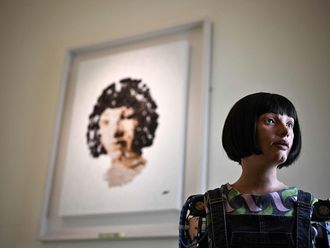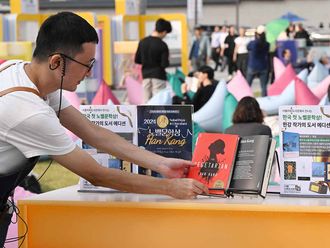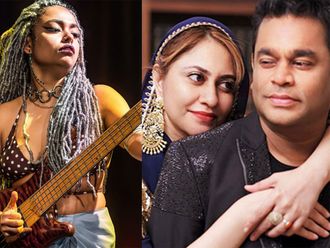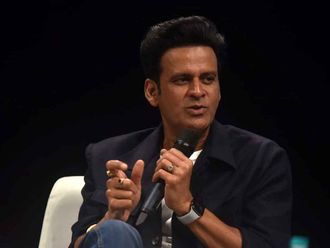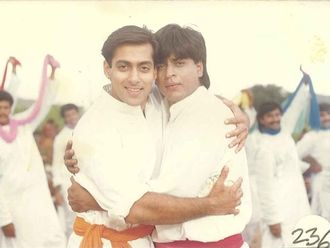She was born into a top Bollywood acting dynasty, but there’s more to Navya Naveli Nanda than the Bachchan lineage. The granddaughter of Amitabh Bachchan and Jaya Bachchan, at 26, is a staunch women’s rights advocate who is keen to use her clout and celebrity status for the greater good. Her video podcast and show ‘What The Hell Navya’, with two seasons under its belt, brought together three dynamic women of the Bachchan family — her mother and author/columnist Shweta Nanda, her grandmother and actress Jaya Bachchan, and herself — to discuss topics ranging from women’s empowerment to financial independence to parenting. There are three generations of women discussing complex topics in an engaging manner without trivialising it. And Navya never lets us forget that she’s always batting for women.
“’For the longest time, there was this narrative that women’s empowerment is about being the CEO of a company. If you have a top job, then you are considered strong and independent. But a homemaker is equally strong. Women’s empowerment is all about the freedom to make that choice for yourself,” said Navya in an interview over Zoom with Gulf News.
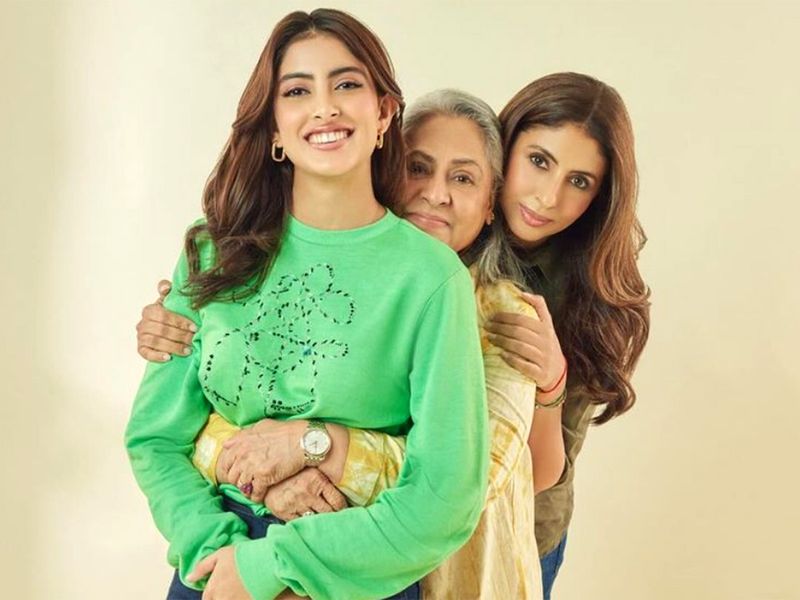
The founder of Project Naveli, an initiative that fights gender inequality in India by empowering women through education towards greater financial independence, legal awareness, and mental and physical health, believes that her definition of a superwoman is all about women having the right to choose.
“Often a homemaker is not considered a strong, independent woman … She’s actually far stronger and far more independent than anyone out there because she is seeing and facing a very different life at home, a life that we don’t appreciate enough. She’s responsible for raising a whole generation of people who are going to change the world someday. A homemaker’s job is as [tough] as being a CEO or leading a company of 1,000 people. The whole concept of women’s empowerment really lies around respecting and, you know, giving women the freedom to make the choices that they want to make,” she added.
She has already made her choice. She says she has never thought of acting as a career choice, but philanthropy excites and inspires her.
“I definitely don’t think I’m a celebrity ... I was just fortunate to be where I am and to be in the family that I am. Because of them, I have this platform and I want to use that platform for the right thing,” said Navya.
Excerpts from our interview with Navya as we speak about privilege, working with family, and more …
Back in journalism school, we were cautioned about working with family on a story … But you seemed to have cracked that elusive code with three generations of women speaking about issues ranging from masculinity to privilege.
This idea for our podcast came about during the lockdown. We got a lot of time with each other where my mom, nani [grandmother], and I spent time sitting on the sofa, talking about life and different topics. The idea just popped up: Why not do a podcast around these conversations in a public forum, and that way, we could put across three different opinions from three different generations? We have different thoughts and different points of views, and many times we agree or disagree on many things. The topics that we curated for each episode are also relevant to today’s youth and today’s context in general. We felt it was nice that we could have some of these conversations and add our thoughts to the ever-growing conversations around these topics.
Your mother Shweta Bachchan has the most sardonic sense of humour … Her life lessons dispensed in borderline sarcastic tones are refreshing to watch.
She has her own fan base after this podcast because people love hearing what she has to say, and she’s always got something very insightful and fun.
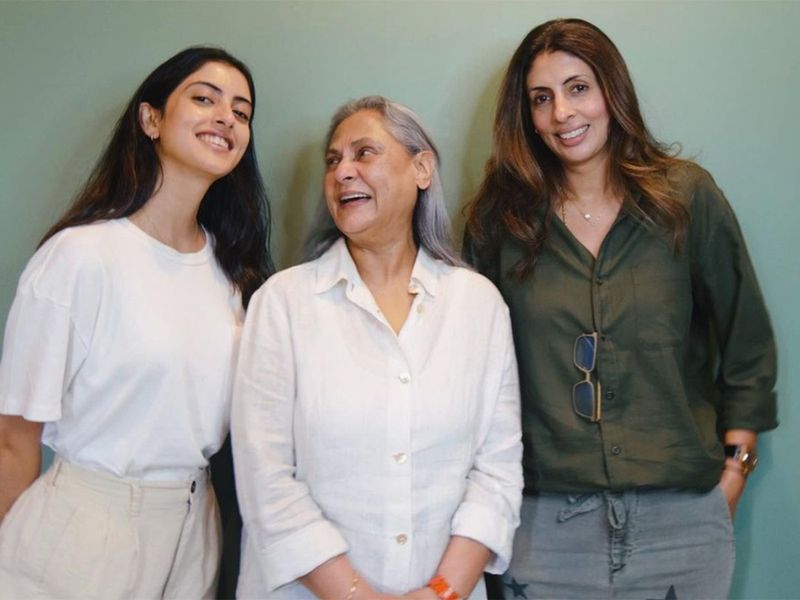
The podcast series is also a portrait of three women who come from a world of privilege and access. But you all seem keenly aware of the same too, but were you worried that many would look at your podcast as a vanity project?
We have always been extremely aware of our privilege, something I have always talked about since the beginning. It’s something that I’ve recognised at each step in my professional life as well, and where I am today is largely due to privilege and the opportunities that I got at a very young age. All three of us are very conscious of that and feel a sense of responsibility with the privilege that we have. Some of the conversations we have, also mentioned in the podcast, may be just relevant to us because we have lived a very different life than a majority of people listening to the podcast, but I think the overall themes — women, health, financial independence, masculinity — resonate with many. Our opinions might align with what people believe as well, and that’s the beauty of it. No matter where you come from, everyone stands for the right thing, and everyone believes in the right thing. For us, especially, the larger theme of women’s empowerment is something that all three of us strongly believe in, irrespective of the background or irrespective of the privilege. We all agree as a society on those topics. We wanted our show so that we share our own personal experiences, but there’s a larger unified voice that also comes out during the podcast when it comes to certain topics and themes.
There’s pressure to appear and sound woke in today’s times … Do you face that pressure to sound politically correct and woke?
I have worked in the development, non-profit sector for the last three-and -a -half years. For me, the work that I do there is my life, and so the conversations that I have — whether at home or a public platform — are all the same because that work I do is what I live and breathe every day. Being progressive comes naturally to me with the kind of profession that I chose, and similarly for my nani [Jaya Bachchan], who’s had so much experience working in the film industry. She started off at the age of 16, and as an actress, she has seen her industry change from when she began in the 60s. So she has her own opinion about the rights of women and has a keen understanding of today’s context. My mom, being an author and an entrepreneur, is also a homemaker. She has her own opinions about what and how women are talked about in today’s context. So, I think it’s not something that we actively tried to do. But I think just inherently because of the professions we chose, or because of where we are personally in our lives, it’s something that comes very naturally. While I am glad that our views fit into the context and conversations that are relevant today, I wouldn’t use the word “woke.” I would use the word “more conscious.” People are a lot more conscious today about certain things. As three women from the same family, we are also very conscious about the context around what’s happening in the world today. I’m glad that we were able to address some of those issues through our podcast.
Your show is women-centric … Was that a deliberate choice?
While it’s mostly the three of us in season two, we had an episode featuring my brother Agastya, and the conversation was around masculinity. We don’t want to exclude men from the conversation around women. I strongly believe that women’s empowerment is not something we can fully achieve without the support of the men in our lives. They play very important roles in our lives — say brothers, colleagues, partners, or even friends. So I think it’s very important to include men in conversations that we have around women. And Agastya stole the show. He got a lot of love for that episode. If we have a season three, I would love to have more male guests and bring their points of view on issues relating to women — whether it’s wage parity or women’s health. Their voice is also equally important at achieving gender equality.
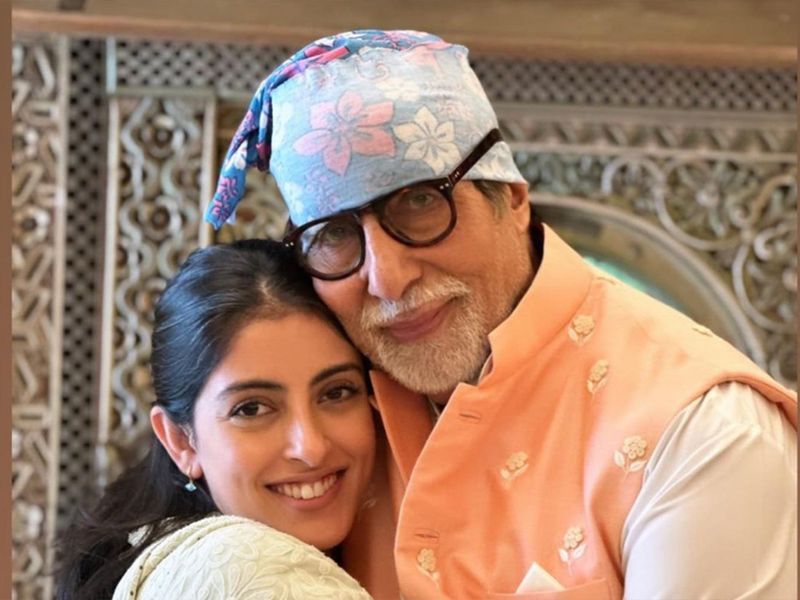
Navya, you have always marched to your own clock and beats. You did not enter the film industry, like your famous uncle, grandmother, or grandfather … But being so comfortable in your own skin may not have been easy. Also, do you wake up with anxiety on what to do next or existentialist angst?
Everyone does at some point or another. There’s so much to be done and achieved in terms of gender equality alone. Women aren’t given opportunities that they deserve, and you see it happen around you a lot. There’s not enough time to accomplish, you feel, and that’s when that existentialism kicks in. Questions like, ‘Will I be able to achieve all of my goals in my lifetime?’ or ‘What kind of an impact will I leave behind in society?’ or ‘Will I leave society a better place than I found it?’ keep cropping up. But I keep reminding myself that impact is not always necessarily largely in numbers, it’s also in the quality and the depth of the impact. If I can impact one person and change their life, I think of it as an achievement. It’s a good place to be if you can impact one life.
Don’t Miss It!
What The Hell Navya is available on Apple podcasts and YouTube



